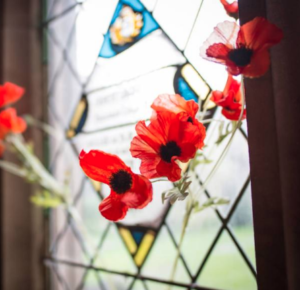To watch this week's service on Youtube, please click here:
Order of service
This morning's order of service is available here:

The Readings
Isaiah 2. 1 - 4
The word that Isaiah son of Amoz saw concerning Judah and Jerusalem.
In days to come
the mountain of the Lord’s house
shall be established as the highest of the mountains,
and shall be raised above the hills;
all the nations shall stream to it.
Many peoples shall come and say,
‘Come, let us go up to the mountain of the Lord,
to the house of the God of Jacob;
that he may teach us his ways
and that we may walk in his paths.’
For out of Zion shall go forth instruction,
and the word of the Lord from Jerusalem.
He shall judge between the nations,
and shall arbitrate for many peoples;
they shall beat their swords into ploughshares,
and their spears into pruning-hooks;
nation shall not lift up sword against nation,
neither shall they learn war any more.
Matthew 5. 1 - 12
When Jesus saw the crowds, he went up the mountain; and after he sat down, his disciples came to him. Then he began to speak, and taught them, saying:
‘Blessed are the poor in spirit, for theirs is the kingdom of heaven.
‘Blessed are those who mourn, for they will be comforted.
‘Blessed are the meek, for they will inherit the earth.
‘Blessed are those who hunger and thirst for righteousness, for they will be filled.
‘Blessed are the merciful, for they will receive mercy.
‘Blessed are the pure in heart, for they will see God.
‘Blessed are the peacemakers, for they will be called children of God.
‘Blessed are those who are persecuted for righteousness’ sake, for theirs is the kingdom of heaven.
‘Blessed are you when people revile you and persecute you and utter all kinds of evil against you falsely on my account. Rejoice and be glad, for your reward is great in heaven, for in the same way they persecuted the prophets who were before you.
The Sermon
Will be uploaded later on.
The Prayers
Let us pray for all who suffer as a result of conflict,
and ask that God may give us peace:
for the service men and women
who have died in the violence of war,
each one remembered by and known to God;
may God give peace.
All God give peace.
For those who love them in death as in life,
offering the distress of our grief
and the sadness of our loss;
may God give peace.
All God give peace.
For all members of the armed forces
who are in danger this day,
remembering family, friends
and all who pray for their safe return;
may God give peace.
All God give peace.
For civilian women, children and men
whose lives are disfigured by war or terror,
calling to mind in penitence
the anger and hatreds of humanity;
may God give peace.
All God give peace.
For peacemakers and peacekeepers,
who seek to keep this world secure and free;
may God give peace.
All God give peace.
For all who bear the burden and privilege of leadership,
political, military and religious;
asking for gifts of wisdom and resolve
in the search for reconciliation and peace;
may God give peace.
All God give peace.
O God of truth and justice,
we hold before you those whose memory we cherish,
and those whose names we will never know.
Help us to lift our eyes above the torment of this broken world,
and grant us the grace to pray for those who wish us harm.
As we honour the past,
may we put our faith in your future;
for you are the source of life and hope,
now and for ever.
All Amen.

